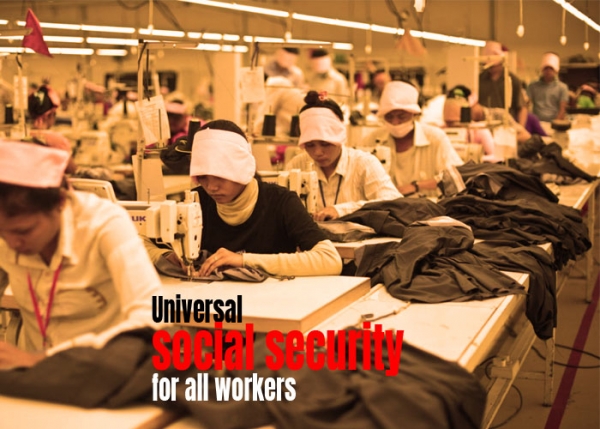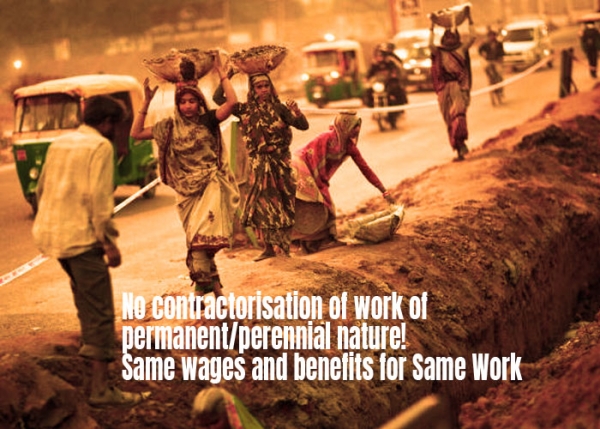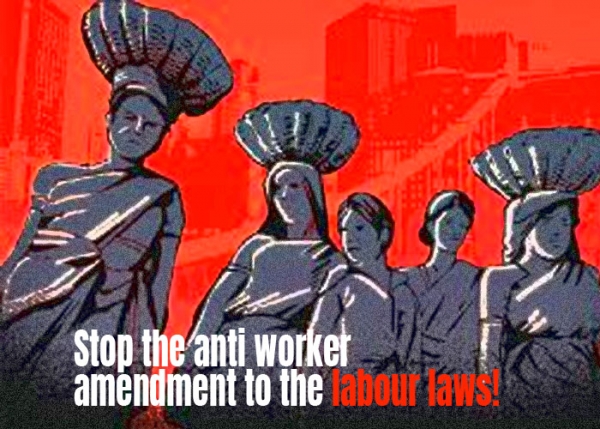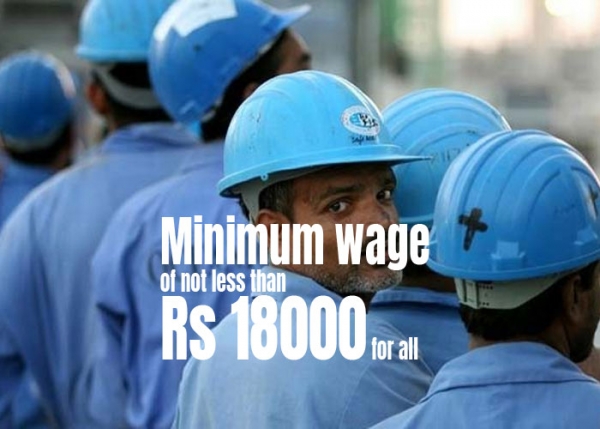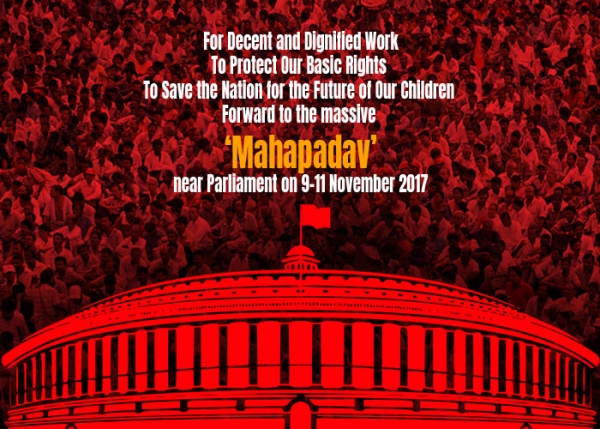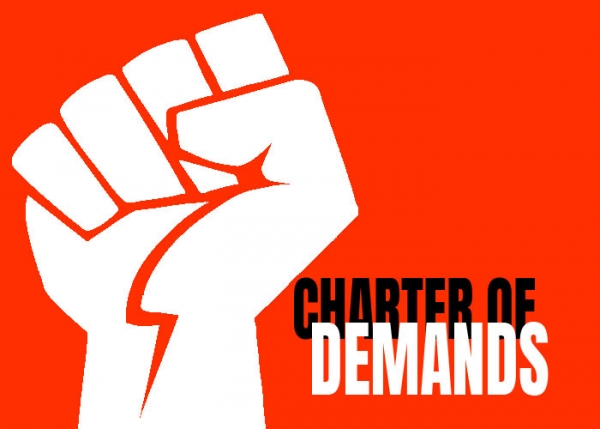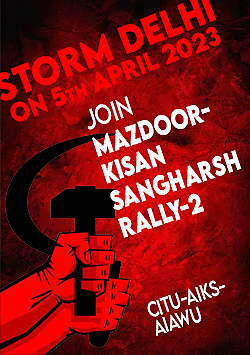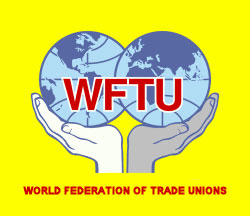The trade unions are demanding universal social security for all workers. Today a very small section of workers, mainly in the organised sector only are covered by social security benefits like provident fund, ESI, medical benefits, maternity benefit, accident compensation, gratuity, pension etc. Given the tardy enforcement mechanism, encouraged by the governments themselves, even fifty percent of the workers in the organised sector, particularly the contract workers, are also deprived of their legitimate social security benefits. Despite contributing to over 60% of the country’s GDP, the unorganised sector workers do not get any social security benefits. Some segments of the…
Stop disinvestment and strategic sale of public sector undertakings – this is one of the major demands of the joint trade union movement. Why does the government want to privatise and dismantle the public sector, in the first place? Privatisation is one of the major components of neoliberal policies, to which both the Congress and the BJP are committed – privatisation of public enterprises, public resources and public services etc. It is a method of handing over public property, property belonging to the people, to private corporates, so that they can amass wealth at the cost of the nation. Privatisation…
No contractorisation of work of permanent/perennial nature! Same wages and benefits for Same Work Under the neoliberal regime, the number of contract workers has been increasing not only in the private sector but also in the public sector and in the central and state government departments. This has reached alarming proportions now. Today, in most of the establishments in the private sector including in the Multi National Corporations (MNCs), the number of workers with the so called ‘non formal employment relations’ – contract workers, casual workers, temporary, part time workers, apprentices, trainees, fixed term employees etc – far outnumbers the…
Stop the anti worker amendment to the labour laws! Ensure strict enforcement of all basic labour laws without any exception or exemption! Stringent punishment for violation of labour laws Why do employers evade labour laws? Simple! To increase their profits! But why does the government permit evasion of labour laws? Any ordinary citizen violating the laws of the land is generally taken to task by the law enforcement authorities. But not so in the case of labour law violations! Strangely it is the workers, who are being punished, victimised and implicated in false cases for demanding implementation of labour laws…
Minimum wage of not less than Rs 18000 for all including scheme workers; link minimum wage with Consumer Price Index How is it justified? The Seventh Pay Commission for the central government employees appointed by the BJP led government has recommended Rs 18000 as minimum wage. According to the Seventh Pay Commission, this was based upon the formula unanimously adopted by the 15th Indian Labour Conference (ILC) and the directions of the Supreme Court in the Raptakos and Brett case, which was reiterated by the 44th ILC in 2012 and again by the 46th ILC in 2015 (?). The formula…
For Decent and Dignified WorkTo Protect Our Basic Rights To Save the Nation for the Future of Our Children Forward to the massive ‘Mahapadav’ near Parliament on 9-11 November 2017 The joint national convention of central trade unions and industrial federations, held in Delhi on 8th August 2017 gave the historic call for a massive ‘mahapadav’ near Parliament on 9-11 November 2017. This ‘mahapadav’ is intended as a warning for the Modi led BJP government at the centre, which appears to be drunk with power that the workers of this country will no more take its onslaughts on their lives…
Two out of three people in our country are below the age of 35. Over ten lakh more people in India need employment every month. That is, at least 1.2 crore new jobs have to be created every year. During the campaign to the Parliament elections in 2014, BJP and Modi promised creation of 2 crore new jobs every year. Now it is more than three years since the BJP came to power at the centre with its own majority and Modi saab became Prime Minister. What is the situation today? According to the government’s own data, only 2.31 lakh…
Contain price rise of essential commodities! Strengthen public distribution system! The prices of essential commodities, food, medicines, house rents, health, education, transport –most essential for the people in their day to day lives – have been continuously going up. But the wages for most of the workers, particularly in the unorganised sector, continue to remain the same. How do we survive? This is not just the demand of the workers. It is the demand of all sections of working people – peasants, agricultural workers, artisans, employees – almost everybody, except of course, of those who benefit from this rise in…
Urgent measures for containing price-rise through universalisation of public distribution system and banning speculative trade in commodity market Containing unemployment through concrete measures for employment generation Strict enforcement of all basic labour laws without any exception or exemption and stringent punitive measures for violation of labour laws. Universal social security cover for all workers Minimum wages of not less than Rs 18,000/- per month with provisions of indexation Assured enhanced pension not less than Rs.3,000/- p.m. for the entire working population Stoppage of disinvestment in Central/State PSUs and strategic sale Stoppage of contractorisation in permanent perennial work and payment of…
